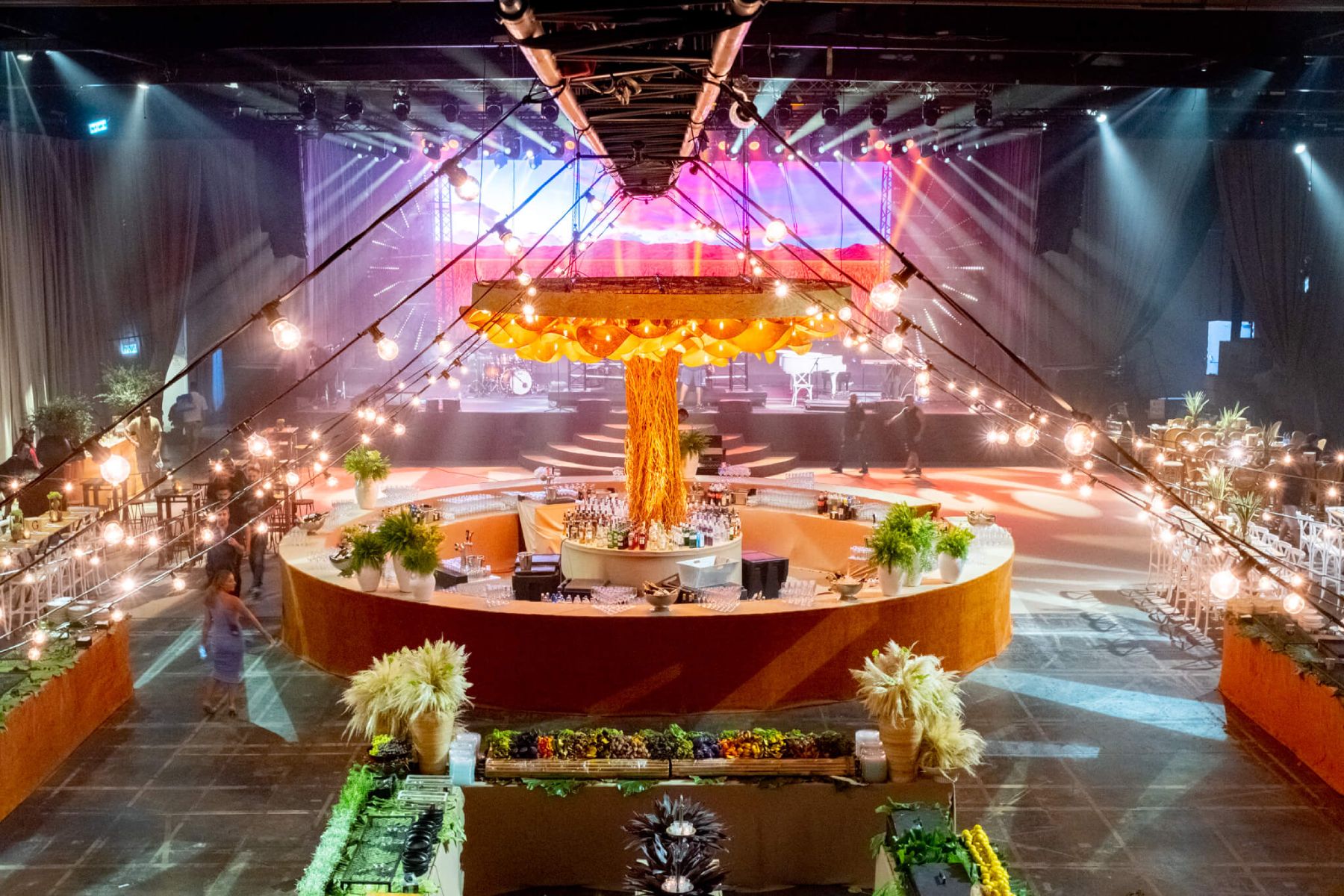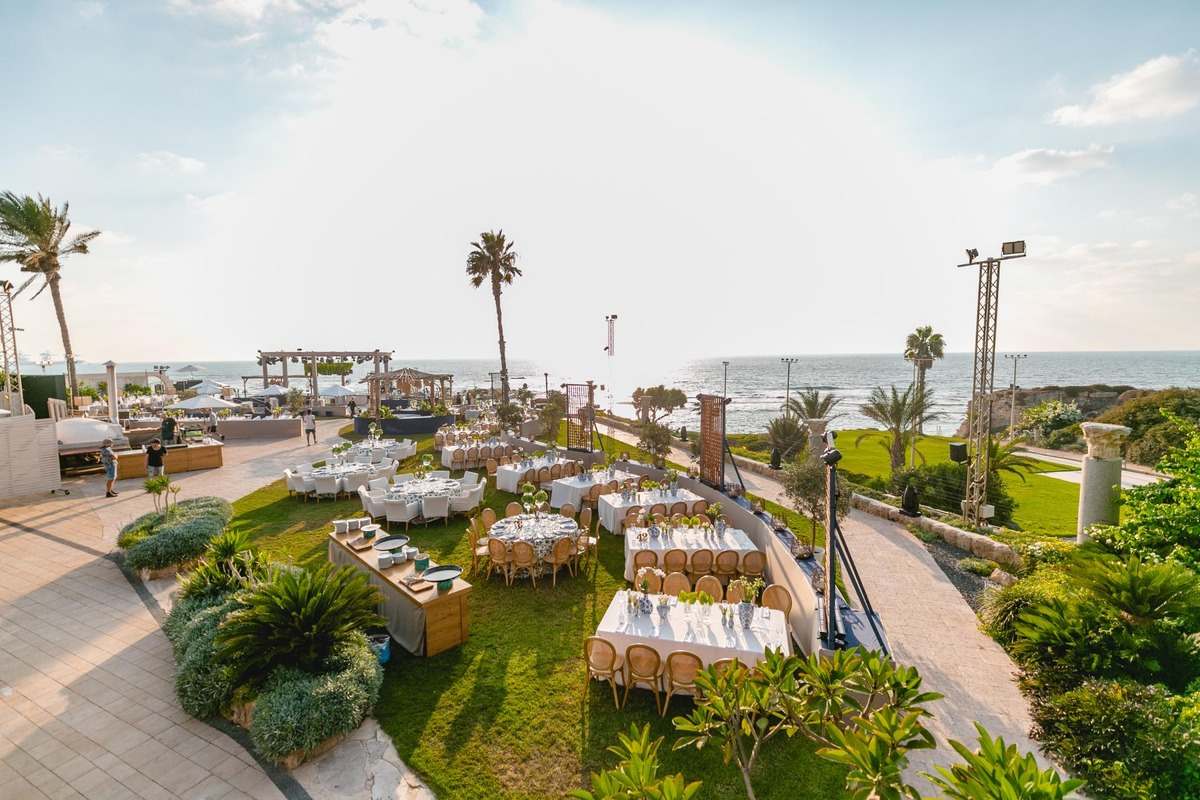
Instead of the standard events we used to know, a new trend has come in that puts the experience at the center. Concept events are no longer just a party – but well-planned experiences that tell a story, create memories, and leave an unforgettable impression on guests. What does it take to produce such an event?
Without us noticing, a significant change has taken place in the field of event production in Israel. Instead of the standard events we were used to in the past, a new trend has entered that places the concept and experience at the center. Concept events are no longer a party with food and decorations – they are well-planned experiences that tell a story, create memories and leave an unforgettable impression on guests.
This change is no coincidence. It reflects a profound and significant shift in customer expectations and the understanding that a successful event is one that connects emotionally with attendees and creates an experience they will remember for a long time. Instead of looking for a production company to manage the logistics, more and more customers are looking for creative partners who will understand their vision and turn it into an amazing reality, one that surpasses all imagination.
What makes an event a concept event?
It all starts with a central idea that forms the basis for all creative decisions
A concept event starts with a central idea, which forms the basis for all creative decisions. It can be a theme, emotion, story, or experience that the event organizers want to convey. The concept is the second thread that runs through all the elements and connects them to each other – from choosing the location to composing the menu, through the design of the premises to the entertainment program.
What sets concept events apart is the level of personalization and the depth of attention paid to every detail of the event. Instead of choosing from a ready-made catalog of options, each element is uniquely tailored to the specific concept. This means that even small details like invitation design, menu, or seating arrangement become part of the overall story.
This approach requires a lot more time, thought, and creativity from the production team, but the results speak for themselves. Concept events create stronger emotions, arouse more interest, and leave a deeper impression than conventional events.
What began in Israel as an industry focused primarily on logistics and execution has become a creative field that combines design, technological innovation, and emotional experiences.
The event production sector in Israel has undergone a dramatic transformation in the past decade. What began as an industry focused primarily on logistics and execution has transformed into a creative field that combines design, technological innovation, and emotional experiences. Israeli clients, exposed to global trends and accustomed to high standards, are increasingly seeking events that go beyond the conventional framework.
Leading production companies understand that success today is not measured solely by technical execution, but by the ability to create experiences that emotionally connect guests to the event. This requires an approach that focuses on deeply understanding the client, building a personal connection, and investing time and attention in each project.
4 elements that make a concept event successful
1 Building the story
Every successful concept event starts with a story. It could be the story of the couple at a wedding, the company narrative at a business event, or the central idea behind a family celebration. It is important to build and establish a cohesive narrative that guides all design and creative decisions.
2 Complete personalization
Unlike standard events, which are based on fixed templates, concept events require complete customization to the client’s personality and desires. This requires investing a lot of time in getting to know the client, understanding their expectations, and translating their vision into practical details.
3 Uncompromising quality
Concept events require an exceptionally high level of finishing in every element. Every detail needs to be perfect, because every detail contributes to the overall concept. This requires working with top-notch suppliers, attention to the smallest details, and strict quality control throughout the entire process.
4 Collection of expert team
Producing a concept event requires a team of experts, each contributing and adding their own expertise to the project. This includes design, catering, entertainment, photography, and other professional areas. The key lies in the ability to coordinate all the elements, “conduct the orchestra,” and ensure that everyone works in harmony towards the common goal.
The Necessary Creative Process: Concept Event Production Begins Months in Advance
One of the biggest differences between concept events and other events is the length and depth of the process leading up to the event itself. Producing a concept event begins months in advance and goes through several creative stages.
The first step is getting to know the client and understanding their vision. This is not just one meeting, but an ongoing process of conversations, understanding, and processing. Leading productions invest a lot of time in understanding the client’s personality, their tastes, and their expectations of the event.
Next comes the phase of building the concept and developing the creative ideas. This phase includes choosing a suitable location, developing a visual design, planning a menu and culinary experiences, and selecting the entertainment elements that fit the concept.
The final stage is the practical execution – coordinating with suppliers, quality control, and managing logistics. But even at this stage, the concept remains central, and every decision is examined according to how it contributes to the overall experience.
The production companies that will succeed in the future will be those that will be able to establish a real connection with their clients, understand their vision, and fulfill it well.
The trend in event production is clear – events will be increasingly personal, increasingly unique, and increasingly sophisticated. Clients expect not only a beautiful event, but an experience that is uniquely theirs, that reflects their personality, and that creates meaningful memories.
The production companies that will succeed in the future will be those that can establish a real connection with their clients, understand their vision, and execute it well. Beyond technical skills, this also requires creative ability, sensitivity, and the ability to be a true partner in the process.
This is how ideas become amazing realities.
In conclusion, concept events represent the future of event production. They not only provide a response to the growing demand for uniqueness and customization, but also enhance the value of the event itself.
For event producers, this is an opportunity not only to manage an event, but to create an experience that changes people. It’s the chance to combine creativity with professionalism, work with interesting people on unique projects, and see how ideas become amazing realities.









